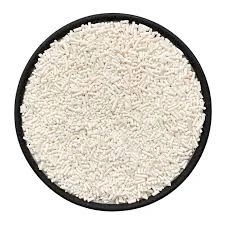
The Role of Additives in Enhancing Food Processing and Shelf Life
Additives in Food Processing and Preservation
Food additives play a pivotal role in the modern food industry, enhancing various aspects of food products, from taste to texture, and significantly influencing their shelf life. As food processing techniques evolve, the incorporation of additives has become increasingly crucial for maintaining quality, safety, and nutritional adequacy in our diets. This article explores the significance of food additives, their functions, and the ongoing debate surrounding their safety and use.
What are Food Additives?
Food additives are substances added to food products during processing to achieve specific desired effects. These substances can be naturally occurring, like salt, or synthetic compounds manufactured to fulfill particular purposes. They are categorized into several groups, including preservatives, flavor enhancers, coloring agents, and stabilizers. Each type of additive serves different roles in food preservation and processing.
Functions of Food Additives
1. Preservation One of the primary functions of food additives is to inhibit spoilage and extend the shelf life of products. Preservatives, such as sodium benzoate and sorbic acid, prevent the growth of bacteria, yeasts, and molds. This is essential for maintaining food safety and reducing food waste in a world where billions of pounds of food are discarded annually.
2. Flavor Enhancement Additives like monosodium glutamate (MSG) and various flavor compounds are used to intensify or modify flavors. These additives contribute to the sensory experience of food, making it more appealing to consumers. In a competitive market, taste is a significant factor that influences purchasing decisions.
3. Coloring Agents Visual appeal is essential in food marketing, and coloring agents are often added to enhance the appearance of food products. Natural colors, such as beet juice or paprika extract, may be used alongside synthetic colorants to maintain the product's aesthetic qualities, which can affect consumers’ perceptions of taste and freshness.
additives in food processing and preservation

4. Texture and Stability Stabilizers, emulsifiers, and thickeners are additional additives that improve the texture and mouthfeel of food products. They help preserve the desired consistency of sauces, dressings, and dairy products, ensuring a uniform experience for the consumer.
5. Nutritional Enhancement Some additives are designed to fortify food products with essential nutrients. Vitamins and minerals can be added to enhance the nutritional profile of processed foods, addressing deficiencies in the average diet and promoting public health.
Safety and Regulation
Despite their benefits, the use of food additives has sparked ongoing debates regarding their safety and long-term health effects. Regulatory bodies, such as the Food and Drug Administration (FDA) in the United States and the European Food Safety Authority (EFSA) in Europe, assess the safety of food additives before approving their use. These agencies require extensive testing to ensure that additives do not pose health risks.
Nevertheless, concerns persist among consumers about potential allergic reactions, long-term health effects, and the ethical implications of using synthetic versus natural additives. The push for “clean labels” reflects a growing consumer preference for transparency and simplicity in food ingredients, leading companies to reconsider their use of certain additives.
Conclusion
Food additives are integral to food processing and preservation, playing essential roles in enhancing taste, extending shelf life, and ensuring safety. As awareness of food ingredients continues to grow, it is vital for food manufacturers to balance the use of additives with consumer demands for health-conscious products. Ongoing research and regulation will continue to shape the landscape of food additives in a way that prioritizes both innovation and consumer safety, ensuring that food remains both appealing and nourishing in an evolving market.
-
Sodium Dichloroisocyanurate Safety Handling ProtocolsNewsJul.29,2025
-
Mining Chemicals for Copper Extraction Processes GuideNewsJul.29,2025
-
Fertilizer for Sale Shipping and Storage TipsNewsJul.29,2025
-
Dimethyl Disulfide as Sulfurizing AgentNewsJul.29,2025
-
Benzotriazole Safety Data Handling and Storage GuidelinesNewsJul.29,2025
-
Ammonium Bicarbonate Safety Handling Storage GuidelinesNewsJul.29,2025
-
The Transformative Role Of Trichloroisocyanuric Acid in Water TreatmentNewsJul.23,2025
Hebei Tenger Chemical Technology Co., Ltd. focuses on the chemical industry and is committed to the export service of chemical raw materials.
-

view more DiethanolisopropanolamineIn the ever-growing field of chemical solutions, diethanolisopropanolamine (DEIPA) stands out as a versatile and important compound. Due to its unique chemical structure and properties, DEIPA is of interest to various industries including construction, personal care, and agriculture. -

view more TriisopropanolamineTriisopropanolamine (TIPA) alkanol amine substance, is a kind of alcohol amine compound with amino and alcohol hydroxyl, and because of its molecules contains both amino and hydroxyl. -

view more Tetramethyl Thiuram DisulfideTetramethyl thiuram disulfide, also known as TMTD, is a white to light-yellow powder with a distinct sulfur-like odor. It is soluble in organic solvents such as benzene, acetone, and ethyl acetate, making it highly versatile for use in different formulations. TMTD is known for its excellent vulcanization acceleration properties, which makes it a key ingredient in the production of rubber products. Additionally, it acts as an effective fungicide and bactericide, making it valuable in agricultural applications. Its high purity and stability ensure consistent performance, making it a preferred choice for manufacturers across various industries.











